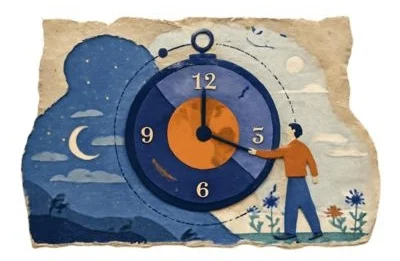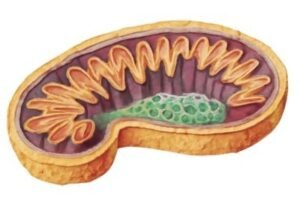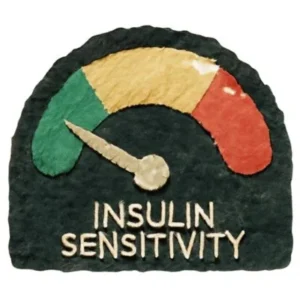We live in a world obsessed with what to eat. Low-carb? Keto? Vegan? Paleo? But science shows that when you eat may matter just as much — if not more — than what’s on your plate.
Your body is not a machine that processes food the same way at midnight as it does at noon.
Table of Contents
ToggleIt runs on an internal 24-hour clock, known as the circadian rhythm.
This rhythm regulates hormones, digestion, metabolism, and even how well you sleep.
👉 When fasting is aligned with circadian rhythms — eating with the sun and resting with the night — health outcomes improve dramatically.
Weight loss becomes easier, hormones stabilize, and sleep deepens.
This is the power of circadian fasting, or Eat-Stop-Sleep fasting.

WHAT ARE CIRCADIAN RHYTHMS?
Circadian rhythms are your body’s natural 24-hour biological cycles that follow light and darkness. They influence:
- Hormone release (insulin, cortisol, melatonin, growth hormone).
- Digestion and metabolism.
- Sleep-wake patterns.
- Energy and alertness.
They are controlled by the suprachiasmatic nucleus (SCN) in the brain — your “master clock.”
This clock is synced to sunlight but also influenced by food timing, exercise, and lifestyle.
CIRCADIAN RHYTHMS AND FOOD: THE FORGOTTEN LINK
Our ancestors ate during daylight and rested at night. Modern life disrupted this:
- Late-night dinners.
- Midnight snacks.
- Blue light exposure keeping us awake.
This mismatch confuses the body’s clock. When you eat late:
- Insulin sensitivity is reduced (harder to process sugar).
- Melatonin (sleep hormone) rises, impairing digestion.
- Calories are more likely stored as fat.
👉 Studies show people eating the same calories late at night gain more weight than those eating them earlier. Timing matters.
THE SCIENCE OF FASTING + CIRCADIAN RHYTHMS
When you align fasting with circadian rhythms, you amplify benefits.
- Insulin Sensitivity Peaks in Morning
- Cells respond best to insulin earlier in the day.
- Eating carbs earlier = less fat storage.
- Eating late = higher blood sugar, insulin resistance.
- Cortisol Awakening Response
- Cortisol (stress hormone) rises naturally in morning to wake you.
- Fasting at this time aligns with natural energy surge.
- Melatonin at Night
- Melatonin rises after sunset.
- High melatonin impairs insulin → late eating stores more fat.
- Growth Hormone While Sleeping
- Growth hormone rises during deep sleep.
- Fasting supports higher growth hormone, aiding repair and fat loss.
WHAT IS CIRCADIAN FASTING (Eat-Stop-Sleep)?
Circadian fasting = restricting eating to daylight hours and fasting overnight.
Common forms:
- Early Time-Restricted Eating (eTRE)
- Eating window: 8 AM – 4 PM or 10 AM – 6 PM.
- Fasting window: Evening + night.
- Eat-Stop-Sleep
- Eat during daylight.
- Stop after sunset.
- Sleep during fast.
👉 This method works with your natural clock, not against it.
BENEFITS OF CIRCADIAN FASTING
- Better Hormonal Balance
- Insulin: More sensitive in morning, reduced at night.
- Cortisol: Works with fasting to release stored energy.
- Melatonin: Sleep quality improves when digestion isn’t active at night.
- Growth Hormone: Peaks during night fast, repairing body.
- Easier Weight Loss
- Eating earlier prevents late-night fat storage.
- Fat burning increases overnight.
- Improved Sleep & Energy
- No heavy digestion at night → deeper rest.
- Morning fasting aligns with natural cortisol and adrenaline → sharper focus.
- Reduced Risk of Disease
- Studies show circadian fasting lowers risk of Type 2 diabetes, obesity, heart disease.
- May extend lifespan by syncing cellular repair with natural cycles.
CIRCADIAN FASTING TIMELINE (0–24 Hours)
Here’s how hormones behave in a circadian-aligned fasting day:
- 6–8 AM (Sunrise): Cortisol rises → natural alertness. Small, protein-rich meal stabilizes energy.
- 10 AM – 2 PM (Daylight peak): Best insulin sensitivity. Ideal for main meal.
- 4–6 PM (Sunset): Begin winding down eating. Keep portions light.
- 6–8 PM: Stop eating. Insulin sensitivity falls, melatonin rises.
- 10 PM – 6 AM (Night): Growth hormone, melatonin, autophagy active → repair mode.
PRACTICAL TIPS FOR CIRCADIAN FASTING
- Shift meals earlier: Make lunch your largest meal, dinner smaller and earlier.
- Avoid late-night snacks: They disrupt melatonin and digestion.
- Control light exposure: Bright light in morning, dim light at night.
- Hydrate during fast: Water, black coffee, green tea allowed.
- Consistency: Body clocks love regularity.
WHAT TO EAT DURING CIRCADIAN-ALIGNED EATING
- Morning: Protein + fiber + healthy fat (eggs, avocado, nuts).
- Midday: Balanced plate (lean protein, complex carbs, vegetables, olive oil).
- Evening (light): Steamed veggies, soup, salad, fish.
Foods that support circadian health:
- Omega-3 fats (fish, walnuts).
- Magnesium-rich greens (spinach, kale).
- Fermented foods (yogurt, sauerkraut).
- Herbal teas at night.
CASE STUDIES & RESEARCH
- Study (Sutton et al., 2018): Men with prediabetes practicing early time-restricted eating (6-hour window, early in day) showed improved insulin sensitivity, blood pressure, and oxidative stress — even without weight loss.
- Night-shift workers: Circadian misalignment leads to obesity, diabetes, and heart disease. Aligning meals with daylight improves health outcomes.
- Animal studies: Time-restricted feeding increased lifespan in mice, even when calories were the same.
RISKS & WHO SHOULD BE CAREFUL
Circadian fasting is generally safe, but be cautious if:
- You are pregnant or breastfeeding.
- You have diabetes and take medications.
- You are underweight or have an eating disorder.
- You do heavy night-shift work (you’ll need modified protocols).
Frequently Asked Questions
Q1: Is circadian fasting the same as intermittent fasting?
- It is a type of intermittent fasting, but specifically aligned with natural body clocks.
Q2: What’s the best eating window?
- For most, 10 AM – 6 PM works well. Earlier windows (8–4) may be even better metabolically.
Q3: Can I eat dinner with family if I stop at 6 PM?
- Yes, you can adjust. The goal is to finish eating before melatonin rises (ideally 6–7 PM).
Q4: Does coffee in the morning affect circadian fasting?
- Black coffee does not break the fast and is aligned with morning cortisol rise.
Q5: Can circadian fasting improve sleep?
- Yes, because digestion is not competing with melatonin and deep sleep hormones.
Eat with the Sun, Heal with the Night
Circadian fasting is not a new diet — it is the way humans have always lived. We ate with the day and rested with the night.
When you eat-stop-sleep in alignment with your circadian rhythm:
- Hormones balance naturally.
- Energy feels effortless.
- Sleep deepens.
- Fat melts without extreme effort.
Your body has always known this rhythm. All fasting does is help you return to it.
👉 If you’ve struggled with late-night cravings, poor sleep, or hormonal imbalance, circadian fasting may be the missing key.
With guidance, you can learn to align food and fasting with your body’s ancient clock — unlocking effortless weight loss, hormone balance, and deep healing.






